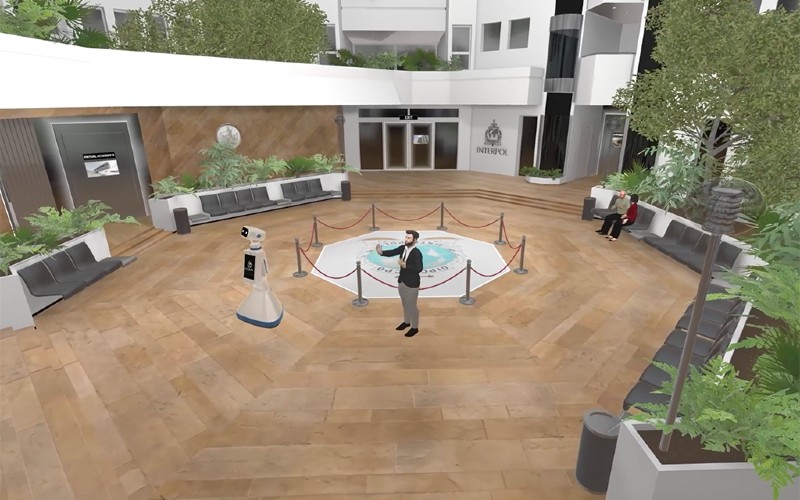Interpol has launched a metaverse specifically designed for law enforcement.
The global police organisation unveiled the virtual world during its 90th general assembly in New Delhi, India.
Fully operational, the metaverse allows registered users to tour a virtual facsimile of its general secretariat headquarters in Lyon, France without any geographical or physical boundaries, interact with other officers via their avatars and take immersive training courses in forensic investigation and other policing capabilities.
During an interactive session, delegates were able to digitally enter the Lyon building through avatars using virtual reality headsets.
“For many, the metaverse seems to herald an abstract future, but the issues it raises are those that have always motivated Interpol – supporting our member countries to fight crime and making the world, virtual or not, safer for those who inhabit it,” said secretary general Jürgen Stock.
“We may be entering a new world, but our commitment remains the same.”

An expert group on the metaverse has also been created to represent the concerns of law enforcement on the global stage.
With crime increasingly moving online as the pace of digitalisation increases, Interpol says police must enhance their awareness of the threats while also harnessing the opportunities of virtual worlds.
“As the number of metaverse users grows and the technology further develops, the list of possible crimes will only expand to potentially include crimes against children, data theft, money laundering, financial fraud, counterfeiting, ransomware, phishing, and sexual assault and harassment,” Interpol stated.
“For law enforcement, some of these threats are likely to present significant challenges, because not all acts that are criminalised in the physical world are considered crimes when committed in the virtual world.”
Madan Oberoi, Interpol’s executive director of technology and innovation, said: “By identifying these risks from the outset, we can work with stakeholders to shape the necessary governance frameworks and cut off future criminal markets before they are fully formed.
“Only by having these conversations now can we build an effective response.”
